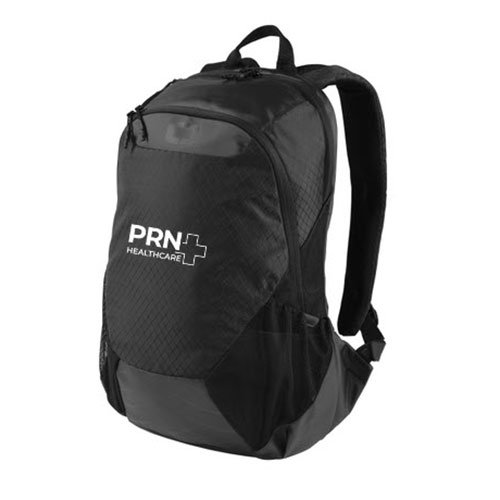Table of Contents
Why did you choose to become a surgical technician?What are your key responsibilities as a surgical tech in the operating room?How do you ensure a sterile environment in the operating room?Can you describe a time when you had to handle a high-pressure situation during surgery?How do you prepare for different types of surgeries?How do you stay current with medical research and advancements?What would you do if you noticed an issue with a surgical instrument during a procedure?How do you ensure effective communication in the operating room? How do you handle stressful situations or difficult surgeons?What methods do you use to ensure that all instruments and sponges are accounted for after surgery?Describe your experience with maintaining surgical instruments.What surgical specialties have you worked in, and which do you prefer?How do you ensure patient confidentiality in your role?How do you approach training or mentoring new surgical techs?What’s the most challenging part of being a surgical tech, and how do you handle it?How do you manage instrument sterilization and turnover between multiple surgeries?What steps do you take to prevent infection in the operating room?How do you prioritize tasks during a busy surgery schedule?What do you consider the most rewarding part of being a surgical tech?Where do you see yourself in the next 5 to 10 years as a surgical technician?Preparing for the interview is crucial because it increases your likelihood of securing a tech job. Effective and thorough preparation helps a candidate present themselves with confidence, clearly articulate their skills and experiences, and respond effectively to the questions. By practicing potential interview questions, one can refine their answers, reduce their anxiety, and demonstrate they are the best candidate for the job.
Preparation will reflect positivity on a candidate’s enthusiasm and performance, and it will leave a good impression on the potential employer. In a competitive job market, being prepared is a differentiator that sets a candidate apart from other candidates.
Preparing for your surgical tech interview involves anticipating questions about both your technical knowledge and skill set. Here are 20 potential interview questions along with potential answers:
Why did you choose to become a surgical technician?
Answer: “I’ve always been passionate about healthcare, and I wanted a hands-on role in helping patients. Being a surgical tech allows me to contribute directly to successful surgeries and patient outcomes, while working in a fast-paced, team-oriented environment.”
What are your key responsibilities as a surgical tech in the operating room?
Answer: “My primary responsibilities include preparing the operating room, sterilizing and organizing instruments, assisting the surgical team during procedures, maintaining sterile conditions, and anticipating the surgeon’s needs.”
How do you ensure a sterile environment in the operating room?
Answer: “I adhere to aseptic techniques, maintain proper hand hygiene, ensure all instruments are sterilized, and keep a close eye on the sterile field during surgery to prevent contamination.”
Can you describe a time when you had to handle a high-pressure situation during surgery?
Answer: “During a complicated surgery, the surgeon requested an instrument that wasn’t immediately available. I quickly communicated with the team to find a suitable alternative while maintaining composure, ensuring that the surgery continued without delay.”
How do you prepare for different types of surgeries?
Answer: “I review the patient’s chart, discuss the procedure with the surgical team, and ensure that all necessary instruments and equipment are ready and properly sterilized. I also familiarize myself with the surgeon’s preferences.”
How do you stay current with medical research and advancements?
Answer: “I regularly attend medical conferences, participate in continuing education, and read professional journals to stay updated.”
What would you do if you noticed an issue with a surgical instrument during a procedure?
Answer: “I would immediately bring it to the surgeon’s attention and provide a replacement instrument, while maintaining a sterile environment. Ensuring the patient is safe is my top priority.”
How do you ensure effective communication in the operating room?
Answer: “I use clear and concise language, actively listen to the surgical team, and anticipate needs based on the procedure. If any concerns arise, I address them promptly to avoid confusion.”
How do you handle stressful situations or difficult surgeons?
Answer: “I remain calm and focused, keeping patient care as my top priority. I focus on maintaining professionalism and adapt to the surgeon’s work style while ensuring the safety and success of the procedure.”
What methods do you use to ensure that all instruments and sponges are accounted for after surgery?
Answer: “I adhere to strict protocols for counting instruments, sponges, and sharps before, during, and after surgery. I always double-check counts with the circulating nurse to ensure nothing is left inside the patient.”
Describe your experience with maintaining surgical instruments.
Answer: “I ensure that all instruments are properly cleaned, disinfected, and sterilized according to hospital standards. I also inspect them regularly for damage or wear and report any issues to ensure they are repaired or replaced as needed.”
What surgical specialties have you worked in, and which do you prefer?
Answer: “I’ve worked in general surgery, orthopedics, cardiovascular, and neurosurgery. While I enjoy the variety, I prefer orthopedics because of the precision required and the satisfaction of seeing patients recover their mobility.”
How do you ensure patient confidentiality in your role?
Answer: “I follow all HIPAA regulations, ensuring that patient information is only shared with those directly involved in their care. I always handle patient records with discretion and protect their privacy.”
How do you approach training or mentoring new surgical techs?
Answer: “I enjoy mentoring by providing clear instructions, demonstrating proper techniques, and offering feedback. I also encourage them to ask questions and provide guidance to help them build confidence in their skills.”
What’s the most challenging part of being a surgical tech, and how do you handle it?
Answer: “The most challenging part is managing multiple tasks under time pressure during complex surgeries. I stay organized, anticipate the surgeon’s needs, and maintain focus on the patient’s safety.”
How do you manage instrument sterilization and turnover between multiple surgeries?
Answer: “I rigorously follow infection control protocols, maintain a sterile field, sterilize instruments, ensure proper hand hygiene, and follow all procedural guidelines to minimize the risk of infection.”
What steps do you take to prevent infection in the operating room?
Answer: “The biggest challenges include managing increasing patient loads, navigating the healthcare system, staying updated with rapidly evolving medical knowledge, and advocating for full scope authority.”
How do you prioritize tasks during a busy surgery schedule?
Answer: “I assess the urgency and complexity of each case, ensure that all necessary instruments and equipment are prepped ahead of time, and coordinate with the team to allocate resources efficiently. Organization is key.”
What do you consider the most rewarding part of being a surgical tech?
Answer: “The most rewarding part is knowing that my job directly contributes to the success of surgeries and the recovery of patients. Being part of a team that helps save lives or improve quality of life gives me a deep sense of fulfillment.”
Where do you see yourself in the next 5 to 10 years as a surgical technician?
Answer: “I see myself continuing to grow within the field of surgical technology by gaining experience in a variety of surgical specialties and in more complex areas like cardiovascular or neurosurgery. I’m also interested in pursuing certifications in advanced technologies, such as robotic surgery, to enhance my technical expertise.”
Interview preparation is key to a strong, first impression. By practicing possible interview questions, a surgical tech can improve their communication skills, reduce their anxiety, and convey their qualifications and desire for a surgical tech position. Your preparation will boost your confidence and demonstrate your commitment and professionalism. Being well-prepared is an important step toward career success as a nurse practitioner.




